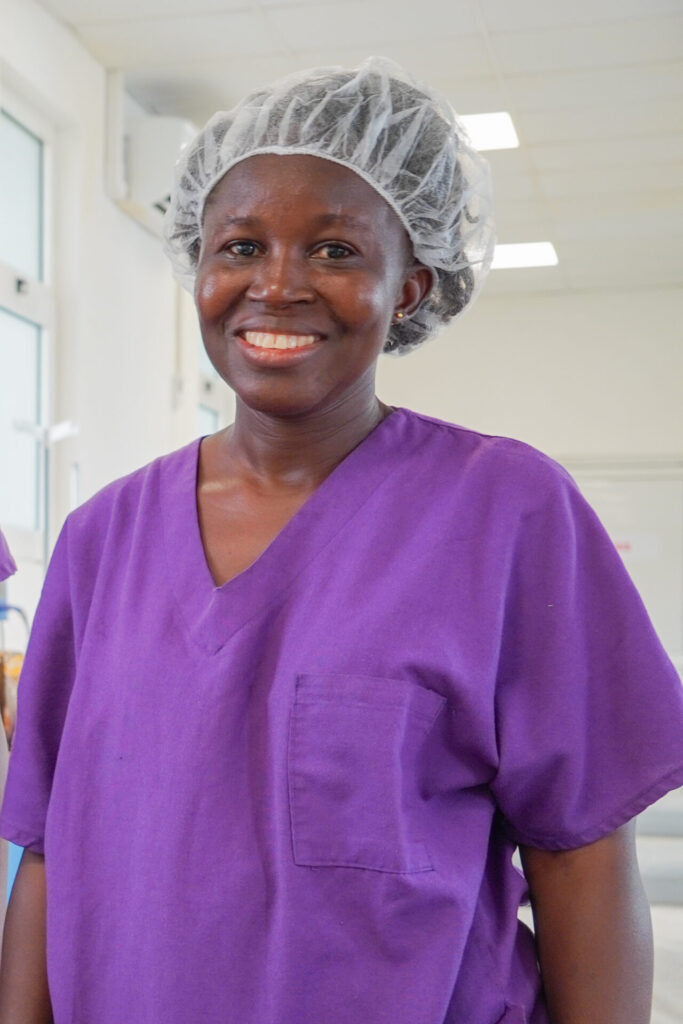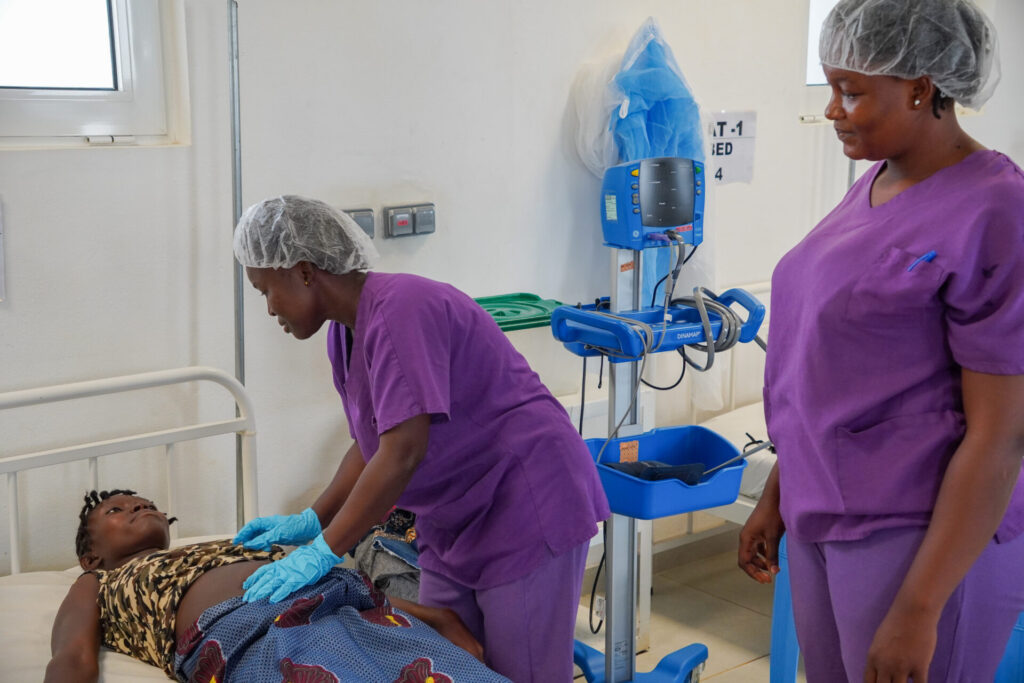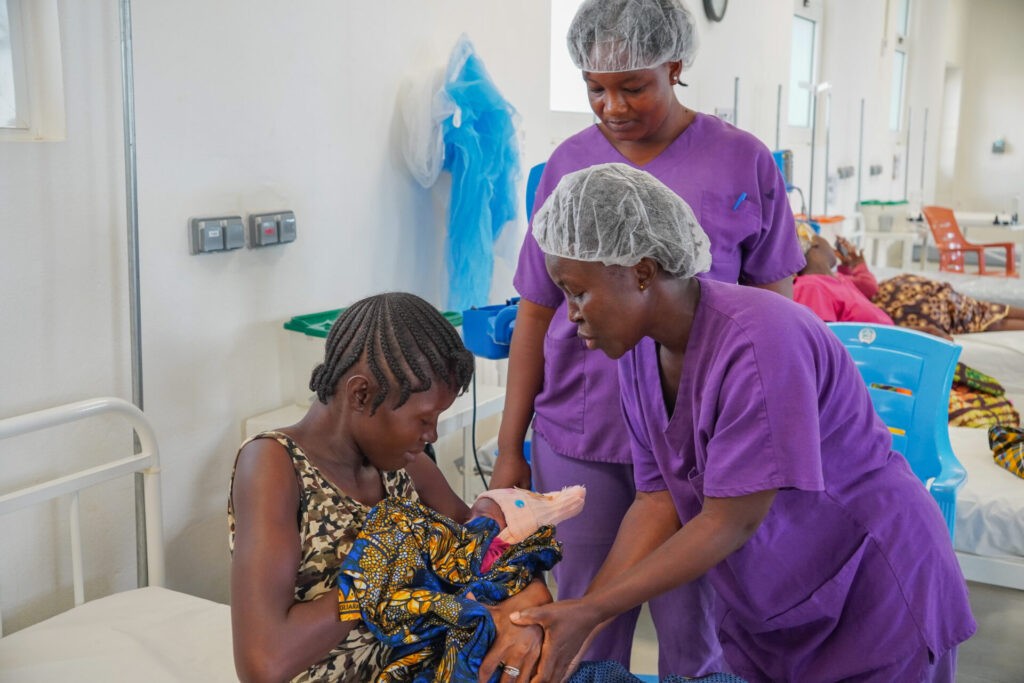Sierra Leone is one of the countries with the highest number of women deaths in childbirth, which poses significant challenges to healthcare professionals. Sia Marian Sorboeh is a midwife working in MSF’s Mother and Child Hospital in Kenema, and participating in the MSF Academy for Healthcare’s Midwifery clinical care training programme. In Kenema, MSF carries out emergency caesareans and other lifesaving surgery for pregnant women and new mothers. Sia’s journey from a childhood interest to a skilled professional highlights the importance of education and training in improving maternal healthcare in Sierra Leone.
Sia’s interest in midwifery began in her childhood. “When I was playing as a kid, I would always be the midwife,” she recalls. “I would deliver the baby, take care of the baby, help the mother, dress the baby, give the baby an injection, vitamin A….” This passion evolved into a career choice, and she now is proud to support women during pregnancy and postpartum and strives for safer pregnancies and deliveries. “I love carrying babies, seeing babies, and helping women during a time of stress as a woman and midwife, because pregnancy can carry so many complications and stress” she says.

I love carrying babies, seeing babies, and helping women during a time of stress as a woman and midwife, because pregnancy can carry so many complications and stress
Sia’s favourite subjects during her training at the Academy were the management of preeclampsia (complication of pregnancy in which a woman has high blood pressure), eclampsia (seizures or coma in a pregnant woman with preeclampsia) and postpartum haemorrhage (PPH). These conditions are significant causes of maternal deaths, yet they can be better managed with the right knowledge and skills. “PPH can lead to quick maternal death, so now, thanks to the Academy training, I know the dangers and how to manage it” Sia explains. She feels that her confidence has grown, knowing she can now handle these situations more effectively.

The Academy’s training programme equips midwives like Sia with crucial skills and knowledge needed for their role at MSF hospital. “I’m so proud and happy that I am trained at the Academy” she says. The hands-on training, guided by clinical mentors who offer both theoretical sessions and clinical mentoring at the patient’s bedside, has been instrumental in her professional development. “The clinical mentor teaches us and then observes us during some procedures, guiding us to do the right thing” Sia notes. The training has empowered her to provide more comprehensive care. “Things that I was not able to do, now I can do them, I can help pregnant women and the babies that need care” she says.

One case that stands out in Sia’s memory involves a woman who was anxious about her difficulty to get pregnant, which was causing her personal issues. “She came to us and asked us to help her. The gynaecologist at the hospital saw her, counselled her, and gave her medication. She finally got pregnant, but during her pregnancy she went through so many issues, even preeclampsia. We tried to help her, then a C-section was done” Sia recounts. “She was almost traumatised for not having a child, but since she had the baby, she was so happy,” Sia recalls.
Sia acknowledges the need for continuous learning. “I need more training to manage complications during pregnancy, delivery, and postpartum,” she says. Sia’s journey shows the critical need for investing in the education and support of healthcare professionals in regions with high maternal mortality rates.
